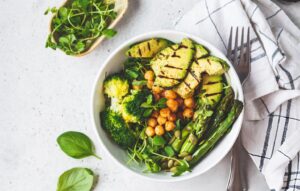
In a world of dietary choices, the vegan ketogenic diet stands out as a game-changer. Are you curious about this innovative way of eating? Let’s explore. Low-carbohydrate, plant-based, and packed with flavor, the vegan ketogenic diet is turning traditional ketogenic on its head.
The vegan ketogenic diet is famous for it’s exceptional health benefits which is a blend of ketogenic diet with vegan diet. The vegan ketogenic diet helps stimulate ketosis with the help of plant based diet which helps in boosting your energy, manage weight, and support overall health. This diet will help you if you are struggling to find a diet contributes in their health goals without compromising taste and energy. This blog will assist you that how can you adapt to the blend of vegan and ketogenic diet while staying cruelty free.
A vegan ketogenic diet combines the principles of two popular eating styles:
Veganism: The diet based on plant-based foods while avoiding all animal food sources.
Keto-genic Diet: A low-carbohydrate, high-fat diet that stimulates your body to get into a state of ketosis, where the body starts burning fat instead of carbohydrates.
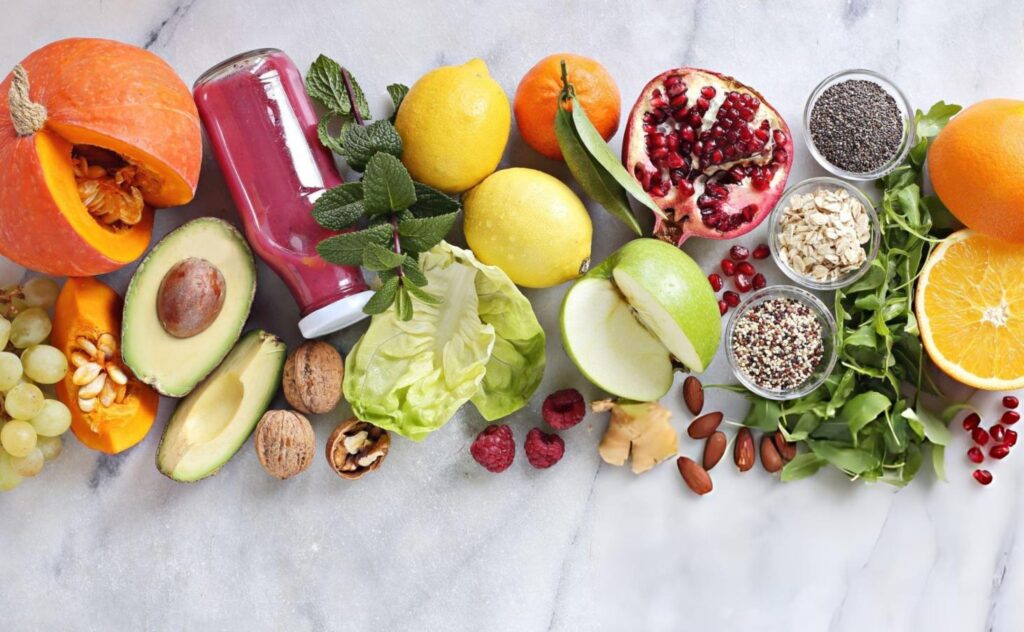
Together, these two diets not only promote weight loss, balances blood sugar levels and enhanced brain functioning but also reduces inflammation and other risk factors that cause the production of free radicals in the body.
1. Promotes weight loss:
The vegan reach the state of ketosis by consuming high fat plant based sources resulting in ketosis. As a result the body starts utilizing the stored glycogen with stored water to burn fat rather than utilizing carbohydrates as it helps to cut back to processed carbohydrates and aids in relying on nutrient dense plant food sources.
4. Environment friendly: Choosing plant-based foods reduces your carbon footprint because it requires less land, fewer resources, produces vastly fewer greenhouse gas emissions, supporting a more sustainable lifestyle.
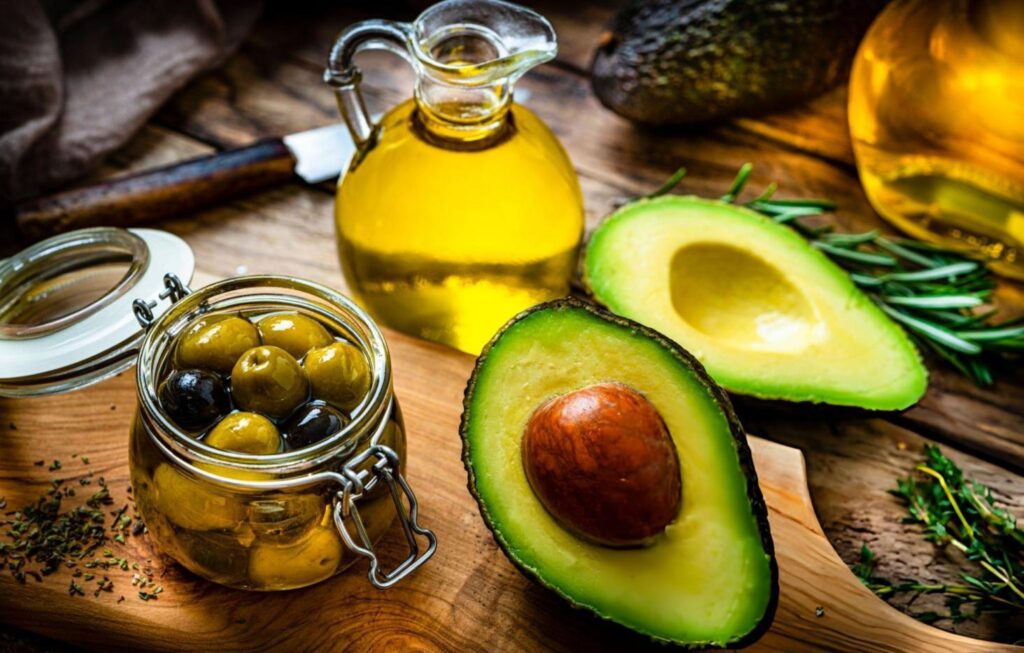
Creating a vegan ketogenic meal plan involves consuming only plant based foods such as vegetables, fruits and grains and avoiding plant based foods like meat, poultry, eggs and dairy. Here are some staples that will help you know what you can eat in a vegan ketogenic diet:
1. Healthy Fats
Avocados
Coconut oil
Olive oil
Nuts (almonds, macadamia nuts)
Seeds (chia seeds, flaxseeds, pumpkin seeds)
2. Low-Carbohydrate Vegetables
Spinach
Broccoli
Zucchini
Cauliflower
Kale
3. Vegan Protein Sources
Tofu
Tempeh
Seitan
Vegan protein powders
4. Plant-Based Dairy Alternatives
Coconut milk
Almond milk
Cashew cheese
5. Snacks and Add-ons
Vegan fat bombs
Nut butter (sugar-free)
Dark chocolate (90% cocoa or higher)
To stay in ketosis, foods that must be avoided are:
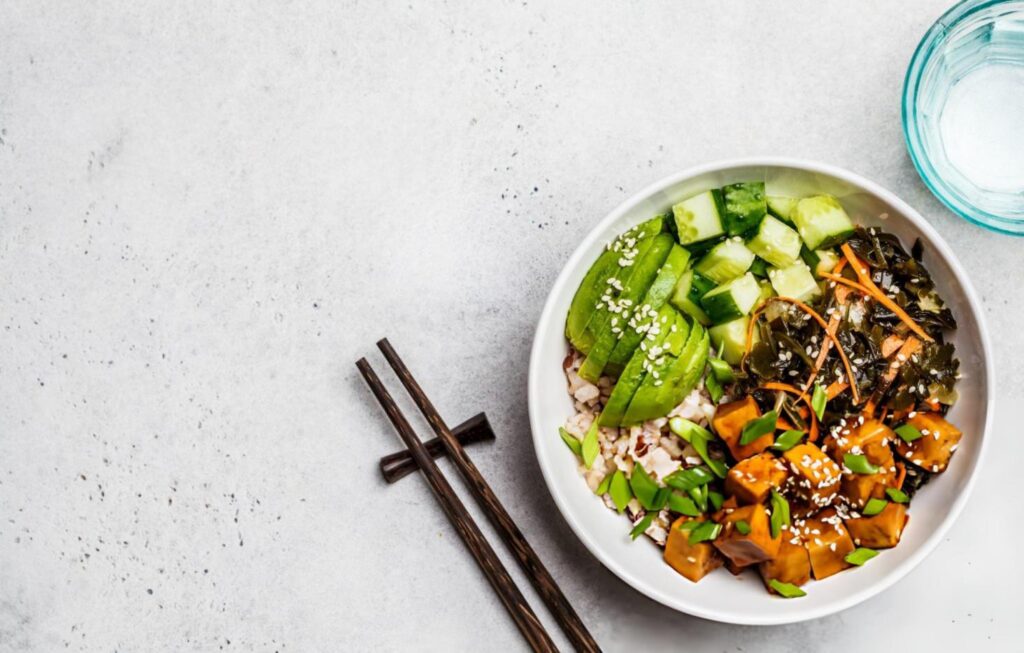
While this diet has many benefits, it also comes with challenges:
1. Limited Food Choices
Combining vegan and ketogenic diet can be limited due to restricted dietary restrictions but creative recipes can be made based on high fa, high protein and low carbohydrate diet.
2. Nutrient Deficiencies
Important nutrients like Vitamin B12, iron, and omega-3s deficiency can be seen as a result of avoiding animal sources. Supplements like algae-based omega-3s and B12 vitamins should be consisdered.
3. Social Eating
As vegan keto-friendly options are not conveniently available when you are eating out so it can a bit difficult to manage this diet outside.
1. Prioritize Meal Preparation: Meals and snacks should be already planned to avoid falling off track.
2. Track your Macro-nutrients: Any food tracking app can be used to affirm if you are consuming in the right ratio of fats, proteins, and carbohydrates.
3. Experiment with Recipes: You can try vegan keto recipes like cauliflower crust pizza, zucchini noodles, or coconut milk-based smoothies.
4. Stay Hydrated: Prevent the “keto flu” during the transition phase by drinking enough water and consider adding electrolytes.5. Listen to Your Body: Everyone’s nutritional needs are different. You need to adjust your diet based on the signs and symptoms given by your body like fatigue or nutrient deficiencies.
The vegan keto diet is not a suitable choice for everyone specially in case if you are suffering from any pre-existing health condition. Before starting this diet, it is preferable to consult with your healthcare professional in order to refrain and other health problems. This diet can be trendy yet healthy way to achieve your health goals combining the ethical and environmental benefits of veganism with the metabolic advantages of keto diet.
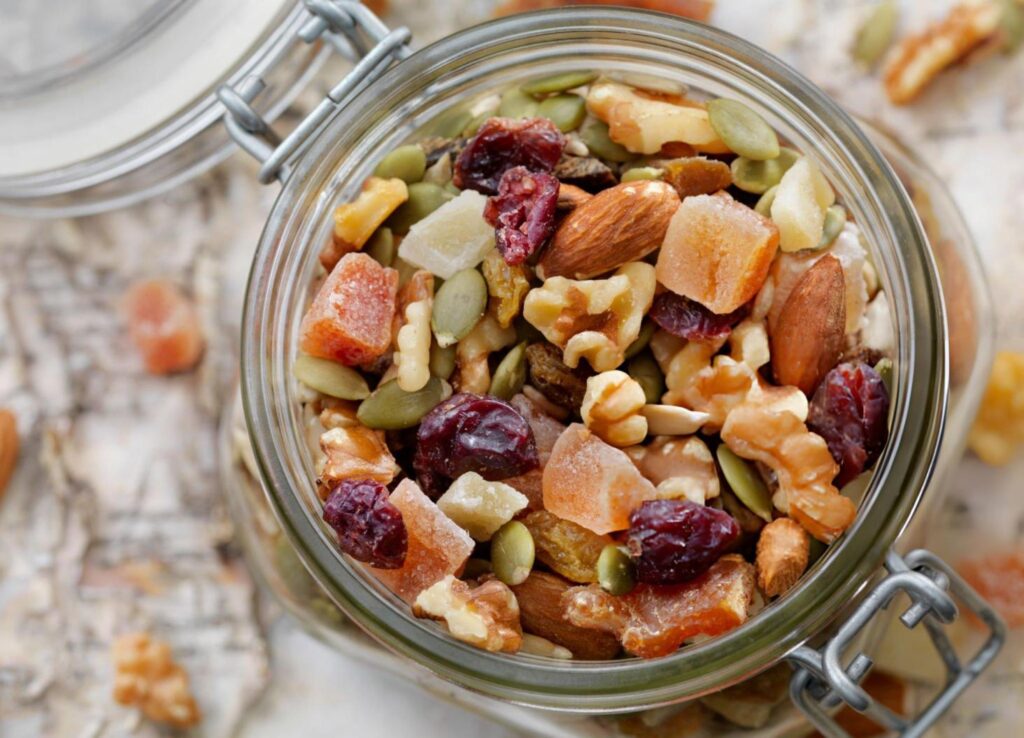
The vegan ketogenic diet is a powerful way to achieve better health while maintaining a plant-based lifestyle. With proper planning and creativity, this diet can be both sustainable and enjoyable. I have authored an exceptional book titled Vegan Ketogenic Diet, designed to offer the healthiest recipes for a vegan ketogenic lifestyle. Embark on a journey to healthier living with a variety of recipes that showcase the finest food flavors. This book serves as a comprehensive guide, featuring a wide range of anti-inflammatory diet recipes while ensuring the perfect balance of macronutrients, micronutrients, essential vitamins, and minerals meticulously incorporated into every meal.
If you’re ready to give it a try, start small, experiment with recipes, and take it one step at a time. Your journey to a healthier, plant-based keto lifestyle awaits!
Ludwig, D. S. (2020). The ketogenic diet: evidence for optimism but high-quality research needed. The Journal of Nutrition, 150(6), 1354-1359.
Piccoli, G. B., Ferraresi, M., Deagostini, M. C., Vigotti, F. N., Consiglio, V., Scognamiglio, S., … & Porpiglia, F. (2013). Vegetarian low-protein diets supplemented with keto analogues: a niche for the few or an option for many?. Nephrology Dialysis Transplantation, 28(9), 2295-2305.
Gupta, L., Khandelwal, D., Kalra, S., Gupta, P., Dutta, D., & Aggarwal, S. (2017). Ketogenic diet in endocrine disorders: Current perspectives. Journal of postgraduate medicine, 63(4), 242-251.
Kossoff, E. H., & McGrogan, J. R. (2005). Worldwide use of the ketogenic diet. Epilepsia, 46(2), 280-289.
Dhamija, R., Eckert, S., & Wirrell, E. (2013). Ketogenic diet. Canadian journal of neurological sciences, 40(2), 158-167.